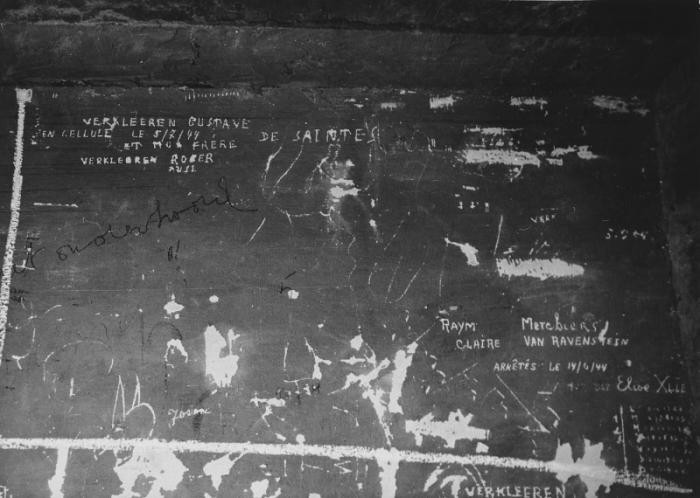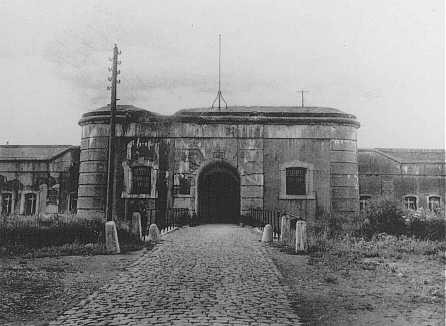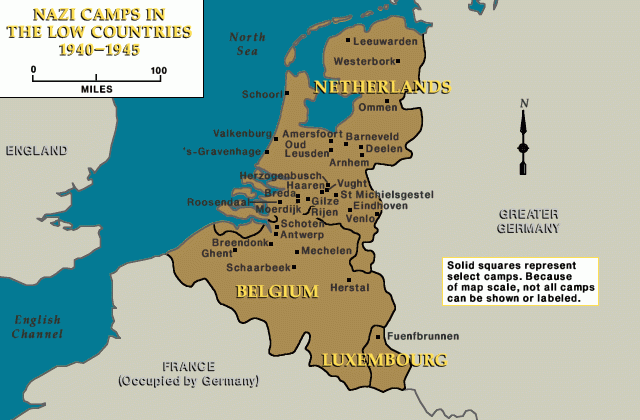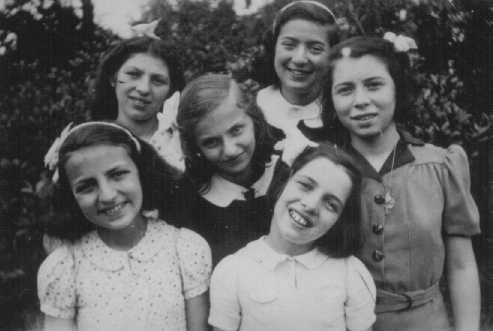
Belgium
German policies varied from country to country, including direct, brutal occupation and reliance upon collaborating regimes. The Germans conquered Belgium in May 1940. German authorities carried out deportations between 1942 and 1944. They deported nearly 25,000 Jews from Belgium to Auschwitz.
German Occupation of Belgium
After the Germans conquered Belgium in May 1940, the Belgian government fled to Great Britain and formed a government-in-exile in London. King Leopold III remained in Belgium under house arrest during the German occupation. A German military administration coexisted with the Belgian civil service.
Immediately after the occupation of Belgium, the Germans instituted anti-Jewish laws and ordinances. They restricted the civil rights of Jews, confiscated their property and businesses, banned them from certain professions, and in 1942 required Jews to wear a yellow Star of David. Belgian Jews were also rounded up for forced labor. They worked primarily in the construction of military fortifications in northern France, and also in construction projects, clothing and armaments factories, and stone quarries in Belgium.
Deportations of Jews from Belgium
The German administration was responsible for the deportation of the Jews in Belgium. Under the German occupation, between 65,000 and 70,000 Jews lived in Belgium, primarily in Antwerp and Brussels. The overwhelming majority of them were foreign and stateless Jews, mostly from Poland. They had found refuge in Belgium after World War I. In the summer of 1940, some German Jews and political refugees were deported from Belgium to Gurs and St. Cyprien, internment camps in southern France.

German authorities carried out deportations between 1942 and 1944. They deported nearly 25,000 Jews from Belgium to Auschwitz. Most were murdered there. The Breendonk and Mechelen camps served as collection centers for the deportations. Fewer than 2,000 deportees survived the Holocaust.

Resistance to the German Occupation
There was considerable support in Belgium for resistance to the German occupation.

Over 25,000 Jews avoided deportation by hiding from the German authorities. The Belgian civilian administration refused to cooperate in the deportations. Further, since most of the Jews in Belgium were immigrants, they tended to be mistrustful of official appeals and were less likely to report their whereabouts to the authorities.
Allied forces liberated Belgium in September 1944.
Critical Thinking Questions
- What is the role of a government-in-exile?
- What was the relationship between the progress of the war and the mass murder of Europe’s Jews?

